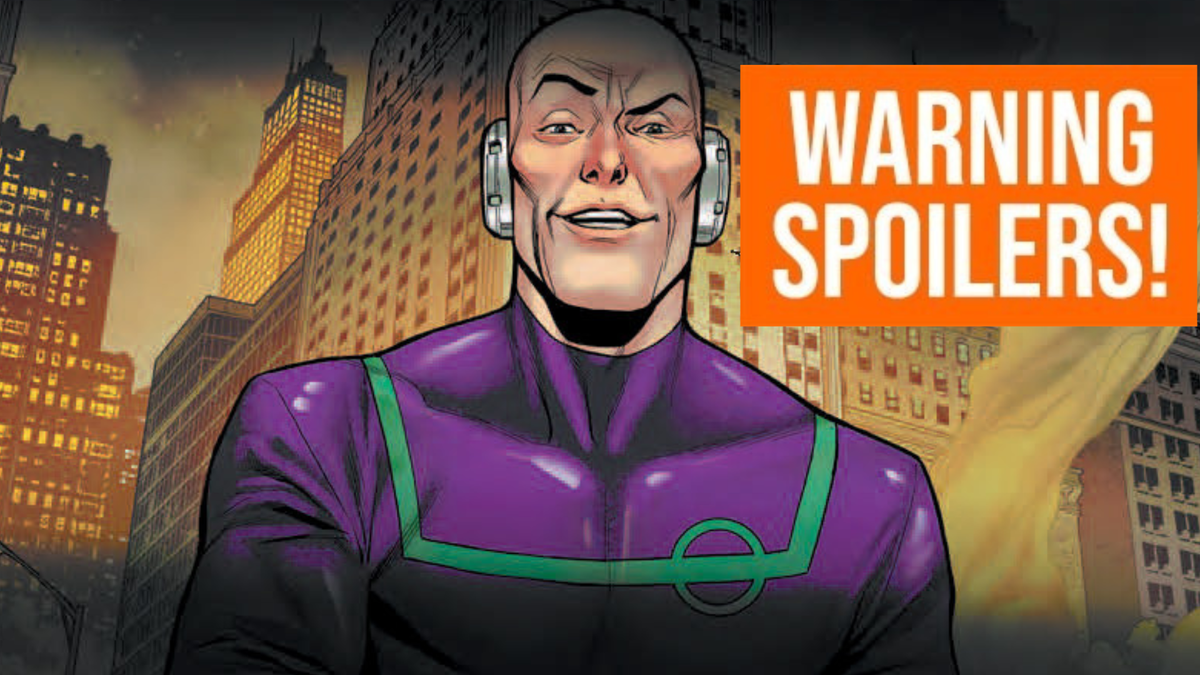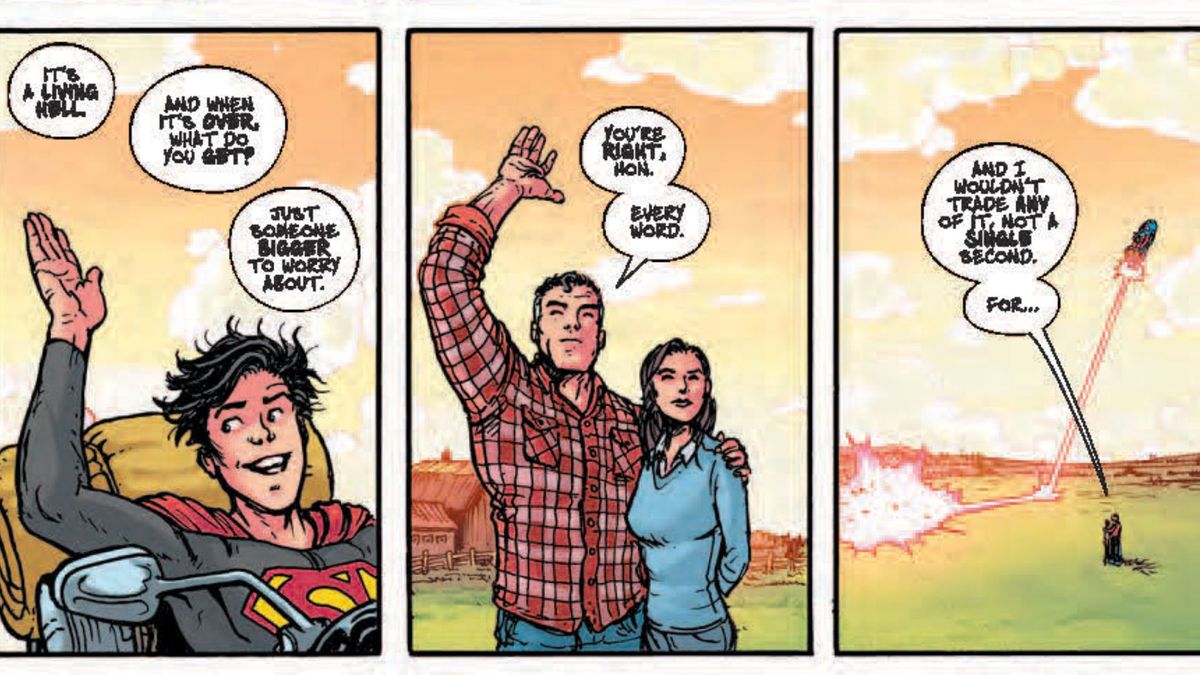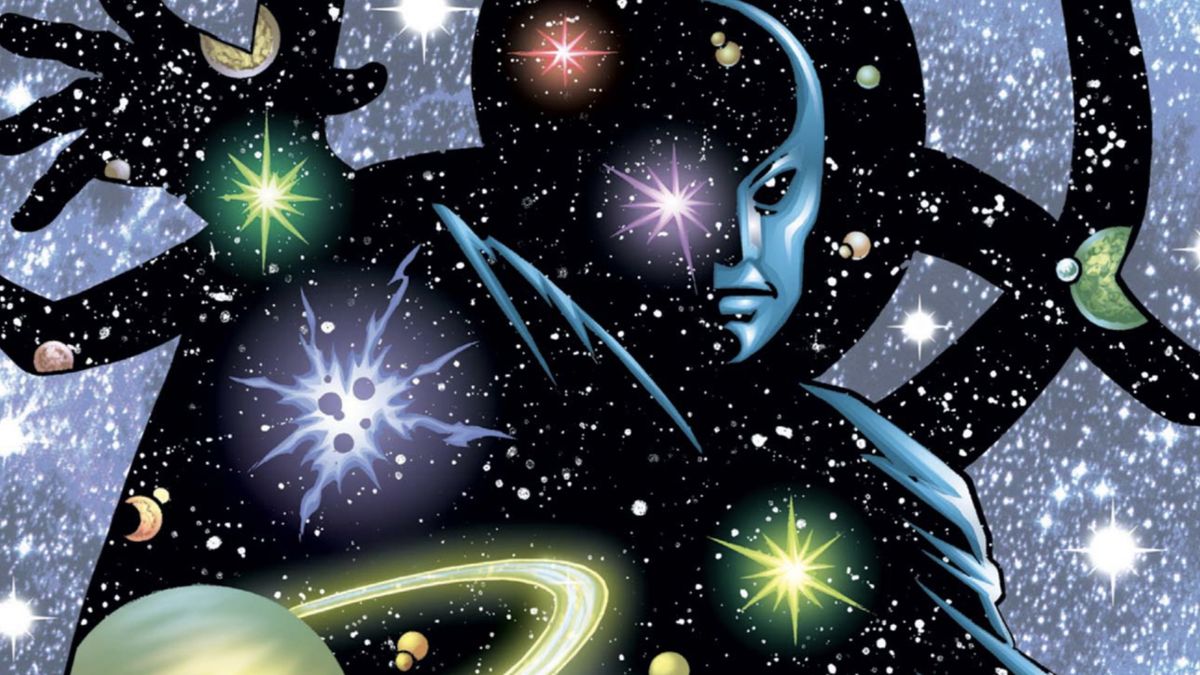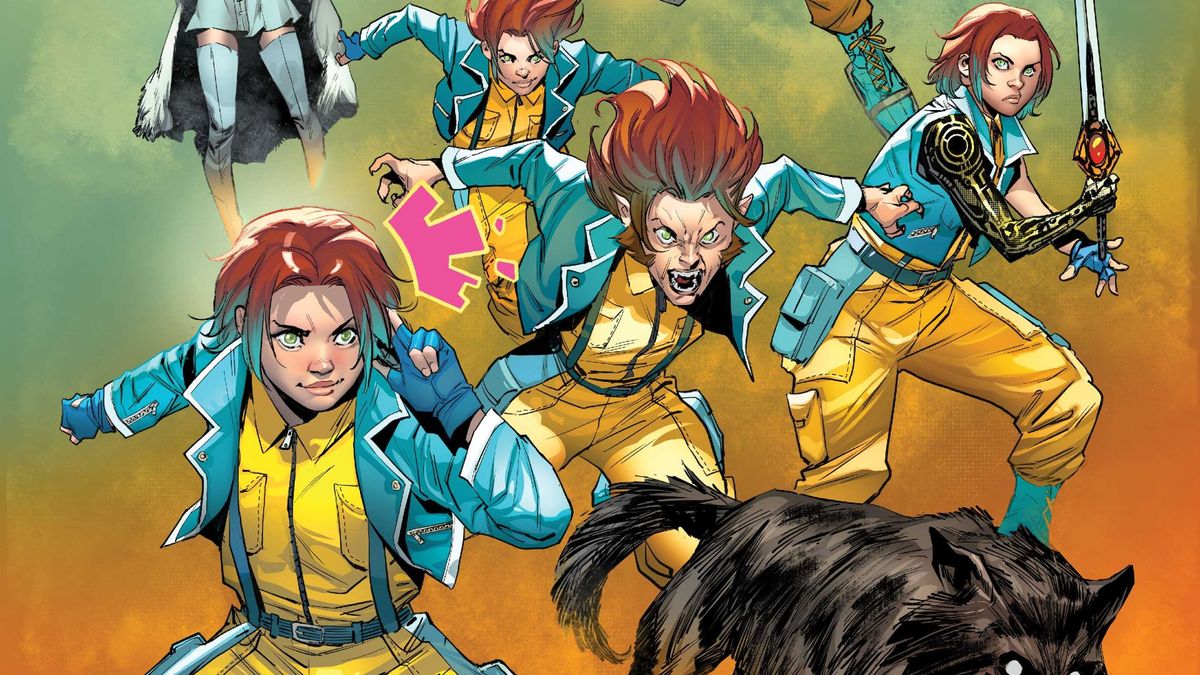Marvel executive vice president/creative director Joe Quesada considers himself first and foremost a storyteller – and he considers stories to be the balm for the chaos of the modern world.
But as the host of the upcoming Marvel’s Storyboards (opens in new tab) – a 15-20 minute talk show in which Quesada interviews a variety of people from comic writer Margaret Stohl, to actor Hugh Jackman, to athletes, composers, and more – he says he’s gained a new perspective on what it means to tell stories and how we communicate with each other.
Newsarama spoke with Quesada ahead of Storyboards’ July 23 premiere on Marvel’s YouTube channel (opens in new tab) about how and why plans for the release of the show moved away from Disney Plus, what it means to be a storyteller, and where the comic book industry is headed right now.

Newsarama: Joe, it’s been a year since Storyboards was announced, and to say a lot has happened in that year is an understatement. How has your perspective on this show evolved in that time?
Joe Quesada: You know, it’s interesting. I’m looking at the show now, during these COVID-19 times, where people are looking for distraction, for entertainment to take their minds off all of that. One of the many things I talked to my guests about in Storyboards is how we’re all storytellers, all of us. Even if you’re not professional, even if you think you don’t know how to tell a story, stories are the antidote to the chaos that surrounds us.
Right now we have really crazy chaos around us, but even something like telling a family member about your day, what happened at work, or an adventure you had on your way home – that’s telling a story and making a connection.
Things are way more chaotic than when we started Storyboards, and so I look back at the show as maybe kind of made for these times right now. I interview everyone from athletes to performers – you name it – and they all have a way of telling stories that is particular to their craft or expertise.
Nrama: Why the transition from a Disney Plus launch to Marvel’s YouTube channel?
Quesada: The biggest reason was, with all the social distancing and so many of us spending more time at home, we wanted to make Storyboards available to everyone. Making this show was so inspirational to me, and the stories are so impactful, we wanted to make the show available to as many people as possible, for free. That’s really what the shift comes down to – let’s get it out there right now, let’s put some inspirational stories out there for everyone. Here it is folks, take it!

Nrama: There are six episodes in the first part of Storyboards season one – many of which feature folks who will be extremely familiar to Marvel fans. Which episode do you think encapsulates the concept of Storyboards? Is there a thesis statement in there, so to speak?
Quesada: Wow. That’s a great question… I could cherry pick moments from every interview, but there are two that come to mind right off the bat.
When discussing Natalia Cordova’s journey from ballerina to playing Buckley on Agents of S.H.I.E.L.D., how she was not confident in her own voice. So she was telling stories in one medium, dance, and then she jumped to acting – which helped her find that voice. She made that leap and she blends that physicality she learned as a dancer with her acting skills onscreen. It’s a crazy shift of gears – she mastered one form and then mastered another too.
And the other one is Margaret Stohl. I’ve known Margie for a while, she’s one of my favorite people on the planet, and to me, she defines that quintessential attitude of “don’t just talk about it, do it.” And that’s seemed to define her whole life.
I’ve often said you can sit with Margie for hours and you’d never know she’s an acclaimed writer, a pioneer for women in video game storytelling, an entrepreneur, you name it – until you ask her. Once you ask her she opens wide up and has so much to say, but she’s a doer. She’s less about talking about things, and more about taking action. And that’s reflected not just in the stories she writes but in the things she does, her charitable efforts, that speaks volumes for her. And I love that about her.

Nrama: There’s a Storyboards season 2 in the works. Who would you love to speak to for the next six episodes? Any big ‘gets’ we can help you put out into the universe?
Quesada: I can’t comment on season 2. Like everything with Marvel, it’s to be revealed!
Nrama: Having interviewed so many people who are so influential, is there anyone you wish you could sit down and have a conversation like this with?
Quesada: Jack Kirby. Certainly. If Jack Kirby was still with us, I would love to sit with Jack and just talk shop. Even just watch him work – sometimes watching an artist at work in their studio gives you more of a sense of who they are than even just talking to them. And I think Jack would be one of those artists.
And then any Beatle! Just pick a Beatle, and I’ll interview them!

Nrama: On that note, how has COVID-19 changed your perspective on not just the comic book industry, but on the community at large? How will that affect your thought process on Storyboards season 2?
Quesada: I think you can get a sense of my personal thoughts on the comic book industry and where we are just in my livestream, The Morning Warm-Up (opens in new tab). That stream is directly an offshoot of my experience making Storyboards season one, this feeling that at Marvel what we do is offer entertainment, a distraction from the real world. So my thinking is that I’ll offer our fans some distraction – and selfishly, some distraction for myself as well.
When it comes to Marvel itself, we’re not just comic books, we’re not just movies, we’re not just video games – we’re a lifestyle. Stan Lee started this how many decades ago? The idea of the True Believer, this familial feeling that even if you read other publishers’ comic books, when you read Marvel Comics you’re part of a family, of a community. You’re part of the Marvel Universe. And it’s not just the fans, it’s the creators, it’s the bullpen. I’ve gotten to know a lot of our fans, and they’ve gotten to know me – I put myself out there!

So my perspective on Marvel Comics as a kind of way of being and a way of living hasn’t changed. Marvel fans love these kind of stories about characters they can empathize with, with a certain level of heroism and drama that’s still grounded in reality. And that even goes beyond Marvel. So it’s a matter of reaching out to everyone, staying engaged, and making sure we’re all hanging in there while we bring in these creators from all walks of life to talk about their lives and their creative process.
Nrama: That brings me to my next question. You’ve said previously that working on Storyboards gave you some perspective on your role as Marvel’s chief creative officer – but now that role, or at least your title, has changed to executive vice president and creative director. What does that transition look like from your end? How has your day-to-day changed with the title?
Quesada: It really hasn’t. [laughs]
I described my job as editor-in-chief the same way I described it when I was chief creative officer, and really the same way I described it now when I first broke into comics and I couldn’t have been happier: I get paid to do what I used to get yelled at for doing in school, which is looking out a window, imagining crazy stories, and then doodling in my notebook – only now my teacher doesn’t stop me and yell at me.
My grammar school teacher nicknamed me “Luna” – Spanish for “moon” – in the fourth grade because of my daydreaming, and that just stuck. But now it’s what I get paid to do, regardless of the title.

Nrama: Speaking of those stories you dream up, you’ve shown off an unannounced comic book you’ve been working on. What can you tell us about that?
Quesada: I can’t tell you a thing! [laughs]
I have this philosophy I’ve talked about on another stream I do, the Drink-And-Draw stream (opens in new tab) – adults only, not for kids! [laughs] – that someone taught me in my music career, which is, don’t talk about something until it’s done. I won’t bore you with much explanation behind that, but that’s my philosophy. I don’t talk about anything until it’s a done deal and I’m ready to put it out there.
Nrama: You’ve been working steadily in comics for 30 years now, and you’ve reached a level in the industry that very few folks have made it to – what are the big items left on your comic book bucket list? Is there a story or character you’ve been waiting for the right time to get into?
Quesada: Yeah, there a few on my list of things I’d like to do, but again I try not to talk about these things until they’re reality, till they’re a done deal.
I have a few personal stories I want to tell that I write on the side and keep warm for when they day comes to do it – hopefully before I die. [laughs]
So there are definitely items on that list, but like I said, I never talk about it until it’s a done deal.
Nrama: You’ve often been the face of Marvel Comics for a larger audience on television – you’ve had appearances on Jimmy Kimmel and Stephen Colbert, and you’ve had numerous columns and convention panels over the years where you’ve offered a direct conversation with readers. How do you see yourself in that role now versus when you were editor-in-chief of Marvel Comics?
Quesada: First off, I don’t see myself as a face for Marvel. Marvel only has one face, really, despite all the amazing creators we’ve had over the years, and that’s Stan Lee. He will always remain the face of Marvel. That’s how I see it.

I’m just a big Marvel fan, a big advocate. If I left Marvel today, I would still be a big advocate for them. I’ve had a tremendous time working for them, not a complaint. There’s nothing to complain about if you work in comics, at the end of the day.
But I also consider myself amongst the creators that are advocates for comics as a whole, for the industry. So I get a little peeved when I hear all this doom-and-gloom about how the industry is dying – cause I’ve been hearing that for the entirety of my 30 years in comics, but we’re still here.
Like any industry we have our ups-and-downs. Like any company. Like any career. I just love this industry, I really do. I love the purity of it. The kind of stories we can tell and the ways we tell them are really infinite. For better or worse, I think the comic industry is a great place so I’m always happy to promote it, and shoot down the negativity as best I can – which is sometimes just to ignore it.
I hope everyone enjoys the show. We have an incredible variety of unexpected guests and ways to tell stories. I’ve had 30 years in the comic industry, I had a whole career telling stories a different way in the music industry, and every episode I walked a way with a completely new perspective on ways of telling stories and how stories are the antidote to the anarchy and chaos that is life.
 Game News Video Games Reviews & News
Game News Video Games Reviews & News



